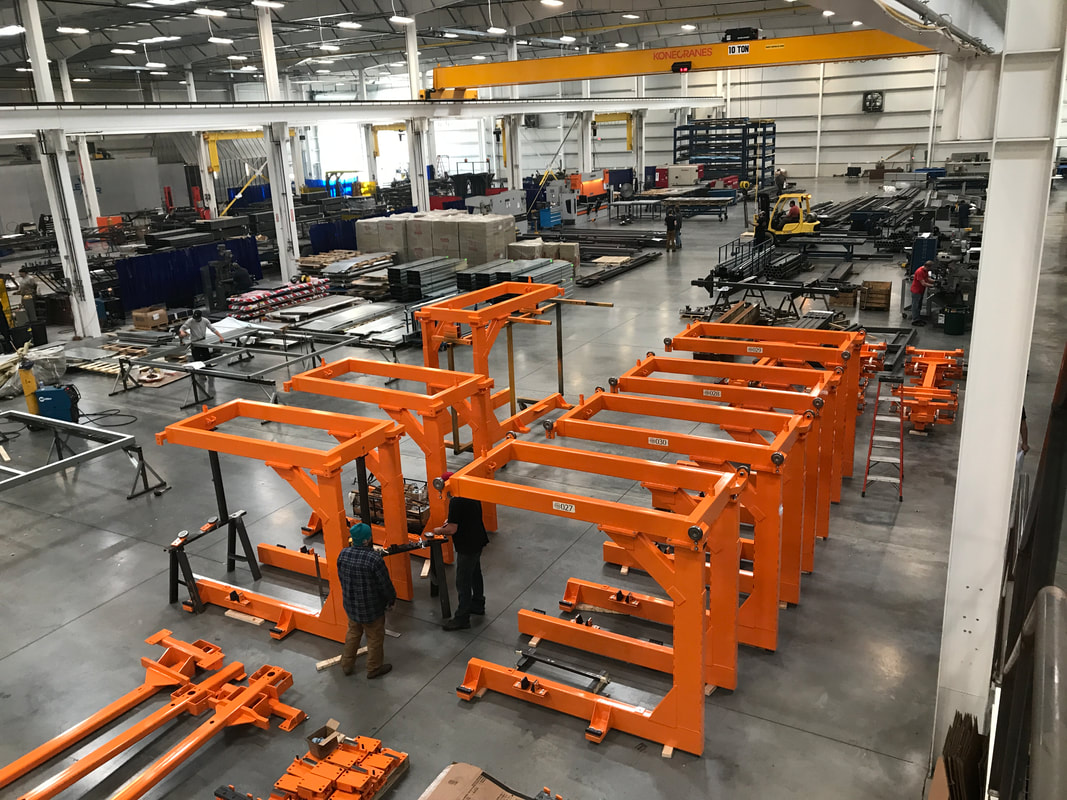Structural steel is a fundamental element in modern construction, offering the backbone for buildings, manufacturing processes, infrastructure, and construction projects. Understanding what structural steel fabrication entails and recognizing its benefits is essential for anyone involved in the construction industry. In this article, we’ll explore the intricate process of structural steel fabrication and highlight its numerous advantages.
What is Structural Steel Fabrication?
Structural steel fabrication involves cutting, bending, and assembling steel to create structures tailored to specific construction or manufacturing needs. This meticulous process transforms raw steel into predefined shapes and sizes.
The primary steps in structural steel fabrication include design and planning, cutting and shaping, welding and assembling, surface treatment and finishing, and rigorous quality control and inspection.
Steps Involved in Structural Steel Fabrication
1. Design and Planning
The fabrication process begins with detailed design and planning. Architects and engineers utilize various computer software to create precise blueprints, ensuring accuracy and efficiency throughout the process.
2. Cutting and Shaping
Steel pieces are meticulously cut and shaped using various machines such as a Mitsubishi laser, 634/Q Peddinghaus angle master, CNC bandsaw, and a Python-X beamline, that cuts up to 2” thick. These specialized tools and machinery are employed to achieve the desired dimensions and shapes, adhering to the project specifications.
3. Welding and Assembling
Different welding techniques, including Metal Inert Gas (MIG), Tungsten Inert Gas (TIG), and stick welding, are used to join steel components. Precision and accuracy during welding are crucial to ensure the structural integrity and strength of the final product. Advanced technology now allows for robotic welding as well. This type of welding consists of robotic arms with 360 degrees rotation and the ability to weld mild steel, stainless steel, and aluminum.
Processes like sandblasting, phosphate washing, painting, powder coating, galvanizing and many other methods are applied to treat and finish metal surfaces. A phosphate pressure clean is followed by an application of wet paint in a fully ventilated system. It is then moved to a powder coat station that has large ovens for drying product. These treatments enhance corrosion resistance, extend the lifespan of the steel, and improve its aesthetic appeal.
Benefits of Structural Steel Fabrication
1. Strength and Durability
Structural steel boasts a high strength-to-weight ratio, making it incredibly strong and durable. It can withstand various environmental conditions, ensuring longevity and resilience.
2. Cost-Effectiveness
Compared to other construction materials, structural steel is economical. Its durability and low maintenance requirements reduce long-term costs, providing significant savings over time.
3. Design Flexibility
Steel’s versatility allows for creative and complex designs. It can be molded into various shapes and sizes, accommodating innovative architectural and engineering ideas.
4. Sustainability
Steel is highly recyclable, reducing its environmental impact. The production and fabrication processes are continually evolving to become more eco-friendly, contributing to sustainable construction practices.
5. Speed of Construction
Prefabrication of steel components allows for quicker assembly on-site, significantly speeding up project timelines and reducing labor costs. This efficiency is particularly beneficial for large-scale projects with tight deadlines.
Applications of Structural Steel Fabrication
Structural steel fabrication is integral to numerous applications, including:
- Commercial buildings
- Industrial facilities
- Infrastructure projects (e.g., bridges, highways)
- Special structures (e.g., stadiums, airports)
- Automotive Manufacturing
Frequently Asked Questions
What is structural steel fabrication?
Structural steel fabrication is the process of cutting, bending, and assembling steel to create structures. It involves transforming raw steel into predefined shapes and sizes tailored for specific construction needs, encompassing steps such as design and planning, cutting and shaping, welding and assembling, surface treatment and finishing, and quality control and inspection.
What are the benefits of structural steel in construction?
The benefits of structural steel in construction include its strength and durability, cost-effectiveness, design flexibility, sustainability, and speed of construction. These attributes make structural steel an ideal choice for a wide range of construction projects, from commercial buildings to infrastructure developments.
What are the advantages of steel fabrication?
The advantages of steel fabrication include the ability to create strong and durable structures, cost savings over time due to low maintenance requirements, the flexibility to design complex and innovative structures, the sustainability of using recyclable materials, and the efficiency of faster construction timelines due to prefabrication.
Conclusion
Structural steel fabrication is a cornerstone of modern construction, offering unparalleled strength, durability, cost-effectiveness, and design flexibility. Its applications span various industries and projects, making it a vital component in the infrastructure that supports our daily lives.
As a family-owned and operated business headquartered in Fenton, Michigan, we at Miller Fabricated Systems are proud to provide high-quality structural steel fabrication services. Founded in July 2014 under Miller Industries, LLC, we serve a wide range of industries across North America. Our products include conveyor systems, structural steel projects, stairs and platforms, baggage and package handling systems, and many other powder-coated metal products.
The foundation of our success lies in our dedicated team. Our laborers, welders, engineers, managers, and principals work together to foster a welcoming culture that values innovation and quality. We are committed to excellence and customer satisfaction, earning a reputation as a trusted provider for automotive, construction, airports and logistics customers worldwide.
When you choose us for your next project, you are choosing a partner who values craftsmanship and a customer-centric approach. Experience the difference that our expertise and dedication can make. Contact us today to learn more about our services and discover how we can meet your project needs with precision and reliability.

